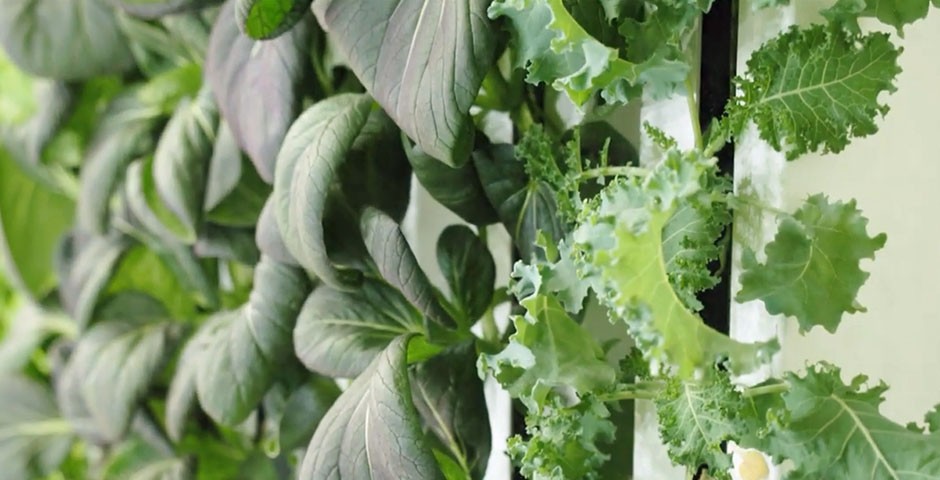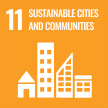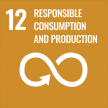
The Growcer Ltd start-up operates Switzerland's first vertical farm in a disused SBB warehouse. Built to be fully automated in the long term, it is the first of its kind in Switzerland. Swisscom is delighted to be the young company's technology partner. “We loved the mission of vertical farming near cities right from the start,” explains Res Witschi, responsible for sustainability in digitisation at Swisscom. “For us it is the perfect example of how modern information and communication technology can help to get environmental problems under control.»
The following state-of-the-art technologies have helped the innovators at Growcer to develop their solution:
- On-premise 5G as a basic infrastructure
- VoIP for telephony
- Managed Network Solutions
- Cloud as a Service
Multiplication of the crop areas
Vertical farming uses technology to take agriculture to the next evolutionary level. Right at the heart of urban areas, large crops of vegetables, herbs and berries can be planted and harvested in empty industrial buildings. The aim is anti-cyclical production that reduces imports – the same quality and quantity of products can be grown all year round in close proximity to the consumer for the same cost. This also minimises transportation and food waste. Closed circuit irrigation can supply these above-ground crops with targeted nutrients, reducing water consumption by up to 90%. For example, the hall in the former goods station in Basel houses around 1,500 square metres of growing area in a 400-square-metre space.
Future technology for sustainability
Vertical farming is a future technology concept designed to enable sustainable agriculture and mass production of plant and animal products in multi-storey buildings (known as farm scrapers) in urban areas. It's a specialist form of urban farming. Based on a circular-economy model and hydroponics under greenhouse conditions, fruits, vegetables, edible mushrooms and algae can be produced all year round in building complexes on several levels, one above the other Proponents of vertical farming argue that this will return traditional agricultural production to its original natural state, thus reducing energy costs for transporting produce from producers to consumers. In addition, the greenhouse effect of atmospheric carbon dioxide is minimized by the circular-economy approach. Critics note, however, that there are additional costs for artificial lighting and other operational work in vertical farming, which cancel out the benefits of the proximity of production to the consumer.
Robotic urban farming: trailer from Growcer showing the fully-automated vegetable production. Total length of video 00:34 min.
Fully committed to sustainability
Vertical farming goes further than treating the resource of the land with care. “Compared to conventional vegetable growing, we save around 90 percent water,” says Marcel Florian, CEO at Growcer Ltd. The constant atmospheric conditions in the hall also have a great direct benefit: it completely dispenses with the use of pesticides. Vegetables and berries from Growcer can be prepared and consumed without being washed.Another notable aspect is the reduction in greenhouse gas achieved by this production method: the crops are grown very close to consumers, eliminating long transport routes.
Political benefits too
Like many other countries, Switzerland must import food. Solutions like this one from Growcer make it possible to promote independence from foreign producers. “We can offer a new level of regionality and continuity here,” promises Marcel Florian from Growcer Ltd. The manifold advantages of fully automated vertical farming in the middle of an urban centre clearly also convinced the major supermarket chain Migros: it has stocked Growcer products in its Basel branches since June 2020. So it's from the region for the region.
Latest news about Swisscom
Subscribe to News
Contact us
Address
Swisscom
Media Relations
Alte Tiefenaustrasse 6
3048 Worblaufen
Postal address:
Postfach, CH-3050 Bern
Switzerland
Contact
Tel. +41 58 221 98 04
media@swisscom.com
Other contacts
Contributing to sustainability
With vertical farming, Growcer makes a direct contribution to the following United Nation goals for sustainable development:

Growcer has set itself the mission to fight hunger with simple farms in Africa.

Vertical farming reduces the amount of water required by up to 90%. This contributes to the availability and sustainable management of water.

Vertical farming ensures the year-round production of food, contributing to the sustainability of the city of the future.

Growcer contributes to needs-based production and the use of sustainable seeds, nutrients and consumables.

Growcer facilities are operated on a climate-neutral basis with 100% renewable energy.

Vertical farming protects groundwater and dispenses with environmentally harmful pesticides. This reduces soil degradation and biodiversity loss.
